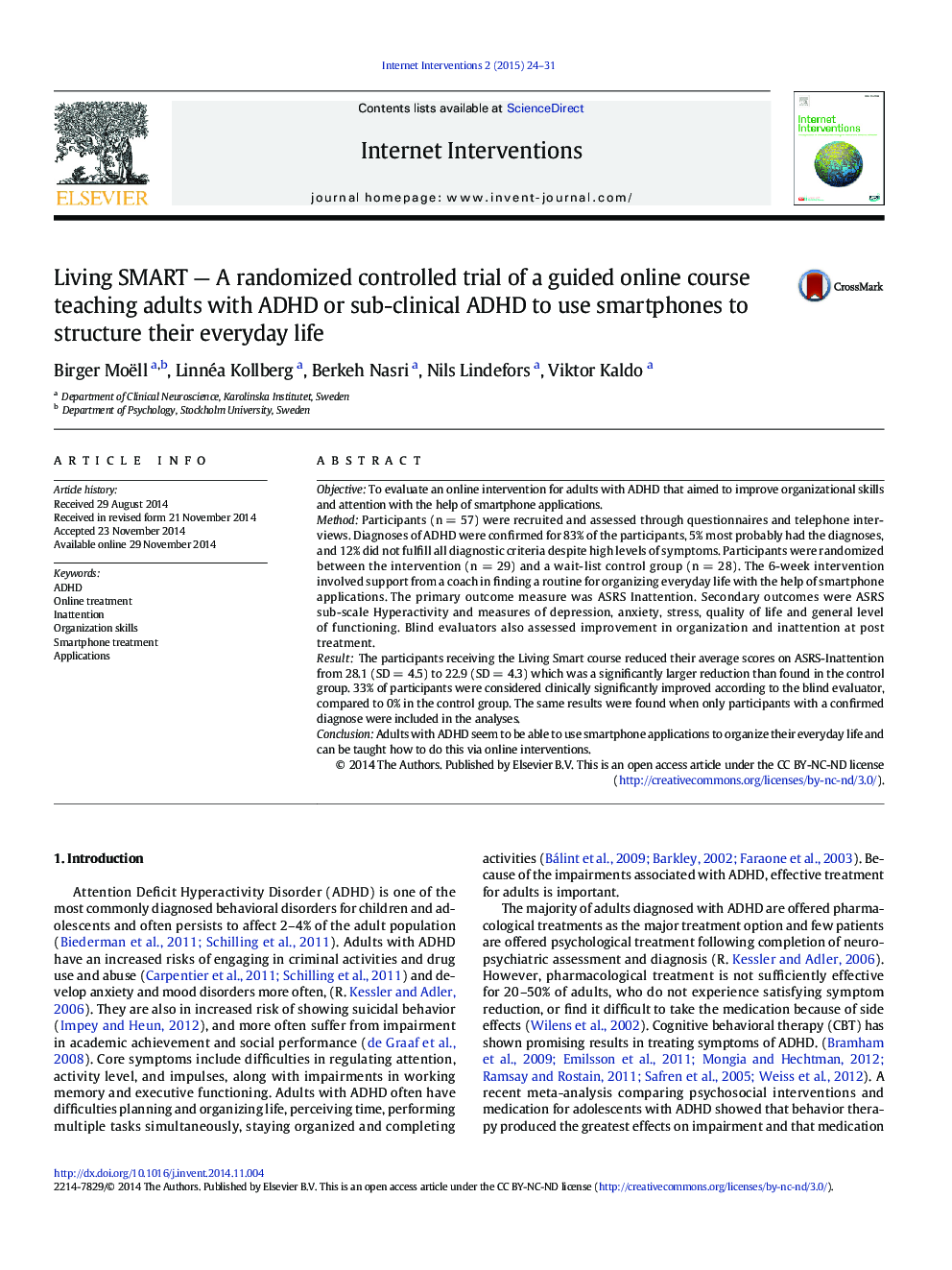| Article ID | Journal | Published Year | Pages | File Type |
|---|---|---|---|---|
| 557145 | Internet Interventions | 2015 | 8 Pages |
•The study evaluated an online intervention using smartphones to improve attention and organizational skills for adults with ADHD.•57 participants were randomized between the intervention (n = 29) and a wait-list control group (n = 28) during a 6-week intervention•Participants reduced their average scores on ASRS-Inattention from 28.1 (SD = 4.5) to 22.9 (SD = 4.3) and 33% of participants were considered clinically significantly improved according to blind evaluator.•The study result show that adults with ADHD benefit from a coach-guided online intervention using smartphone applications and that internet interventions are a feasible way to reach this patient group.
ObjectiveTo evaluate an online intervention for adults with ADHD that aimed to improve organizational skills and attention with the help of smartphone applications.MethodParticipants (n = 57) were recruited and assessed through questionnaires and telephone interviews. Diagnoses of ADHD were confirmed for 83% of the participants, 5% most probably had the diagnoses, and 12% did not fulfill all diagnostic criteria despite high levels of symptoms. Participants were randomized between the intervention (n = 29) and a wait-list control group (n = 28). The 6-week intervention involved support from a coach in finding a routine for organizing everyday life with the help of smartphone applications. The primary outcome measure was ASRS Inattention. Secondary outcomes were ASRS sub-scale Hyperactivity and measures of depression, anxiety, stress, quality of life and general level of functioning. Blind evaluators also assessed improvement in organization and inattention at post treatment.ResultThe participants receiving the Living Smart course reduced their average scores on ASRS-Inattention from 28.1 (SD = 4.5) to 22.9 (SD = 4.3) which was a significantly larger reduction than found in the control group. 33% of participants were considered clinically significantly improved according to the blind evaluator, compared to 0% in the control group. The same results were found when only participants with a confirmed diagnose were included in the analyses.ConclusionAdults with ADHD seem to be able to use smartphone applications to organize their everyday life and can be taught how to do this via online interventions.
